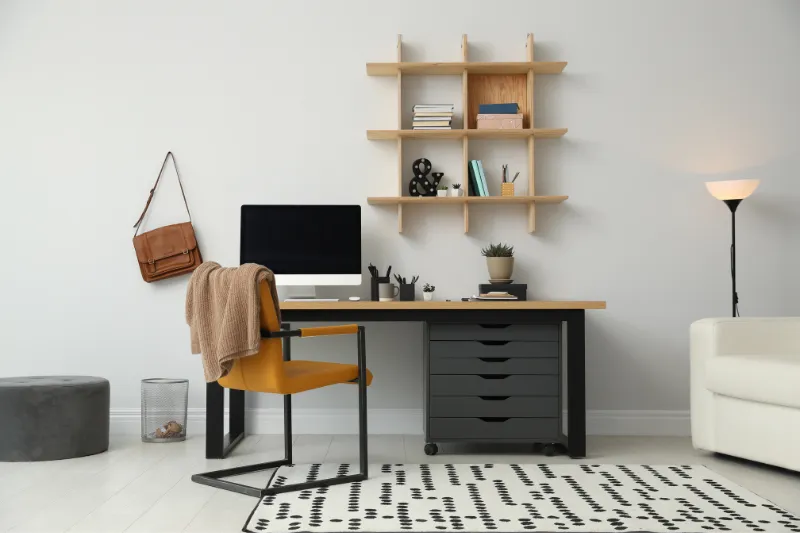As the holiday season approaches, you might wonder how it impacts the real estate market.…

4 Ways Remote Work Has Impacted Home Design
The global shift towards remote work has fundamentally reshaped home design, with an increasing demand for dedicated home offices. This transformation reflects the growing need for spaces that accommodate work-from-home arrangements effectively.

4 Ways Remote Work Has Impacted Home Design
1.) Emphasis on Home Offices
The home office has evolved from a luxury to an essential feature. Today’s homebuyers prioritize properties that offer quiet, well-lit spaces for work, distinct from communal living areas. This demand has spurred innovation among architects and designers, leading to the creation of functional and aesthetically pleasing workspaces integrated within the home.
2.) Multifunctional Spaces
Urban living and the need to maximize limited space have popularized multifunctional rooms. These areas, equipped with convertible furniture and smart storage, adapt to both work and leisure activities. This trend caters to the flexibility required by remote work, optimizing the utility of every square foot.
3.) Smart Home Technologies
Remote work has also boosted the integration of smart home technologies, with homeowners investing in high-speed internet, smart lighting, and energy management systems. These improvements not only enhance work productivity but also increase the property’s value.
4.) Insights for Mortgage Professionals
For mortgage professionals, recognizing how remote work influences home design trends is key to advising clients. Understanding the added value of a home office can assist in discussions about property valuation and marketability. This knowledge is crucial for guiding clients through buying, selling, or refinancing decisions.
Conclusion
In summary, the rise of remote work has significantly impacted home design, underscoring the importance of dedicated workspaces, multifunctional areas, and technological enhancements. Keeping abreast of these trends is essential for professionals in the evolving real estate market.


